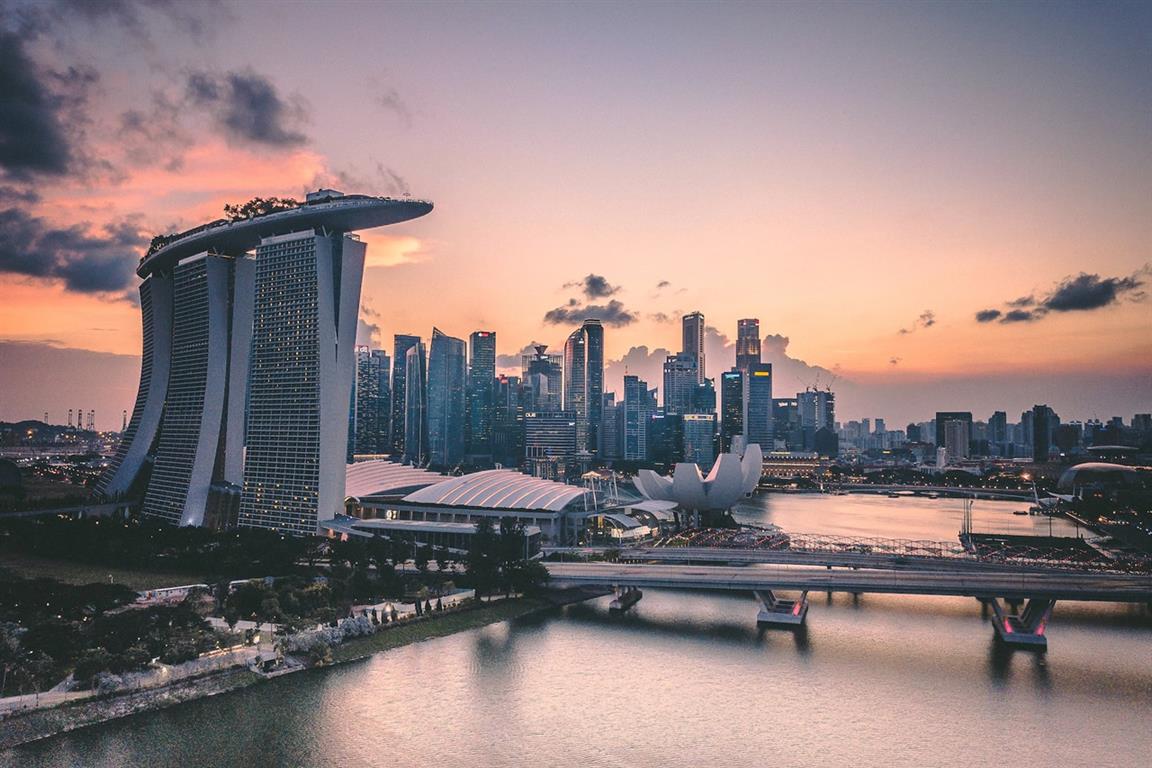Your Short Guide to Living in Singapore as an Expat

Sponsored by Hei Biz
Singapore, a sovereign republic in Southeast Asia, has a reputation for high-quality expat living. If you are thinking of relocating to Singapore, we explain in this article a few key things you need to know about education, cost of living, careers, education and more.
HSBC named it the world's finest expat destination in 2018. It's no surprise that so many expats relocate to Singapore. The city-state has some of the world's highest satisfaction metrics, including GDP, health and social support.
Singapore's cost of living
Singapore offers a very high standard of living which can come at a cost. Singapore was ranked among the top ten most expensive cities in the world to live in the 2022 Mercer cost of living report.
Alcohol is also heavily taxed, which means that foreigners who enjoy going to bars and clubs may find it difficult to sustain a social life here. It is also prohibitively expensive to possess a car due to the high taxes levied on autos. On the other hand, food and consumables are generally quite affordable, and expatriates who are willing to dine at shopping mall food courts and local hawker stalls will discover that they may access meals quite cheaply
Accommodation
Expatriates looking for similar living circumstances to their home country will discover that property costs are relatively expensive here, whether they opt to buy or rent a house. However, if you intend to stay in the country long term, purchasing a home is a smart investment.
The average cost of purchasing a house in Singapore for a foreigner is currently almost at least $1 million for a decent size family home. The amount may vary significantly depending on the neighbourhood and type of property. You may like to consider purchasing property in upcoming developments such as Terra Hill.
Education
Singapore's school system is well-known for its good results and discipline.
Public schools
Public schools are more affordable than international schools and they are a suitable option for individuals planning to live in Singapore long term. However, the complexities of the local curriculum and teaching methods may provide challenges for international students to get accustomed to.
International schools
Singapore offers a variety of good international schools that follow curriculums from the United States, the United Kingdom, Australia or offer the International Baccalaureate. Since tuition is expensive, try to negotiate an education stipend as part of your work contract.
Language
Mandarin Chinese is the official language of Singapore. It is also the language that the Singaporean government uses. However, English is widely spoken, and the main language used in business and commerce. In schools, children are generally taught in English, but they are expected to acquire Mandarin. Tamil, Malay, and Cantonese are also widely spoken in Singapore.
Many Singaporeans speak a language known colloquially as Singlish. It is a blend of English and other languages spoken in the country. It can be quite challenging for English speakers to understand. That said, English speakers rarely have any real difficulties communicating with Singaporeans.
Career & job opportunities for expats
If you have a high level of education and/or professional experience, there are potential job opportunities for you in Singapore. However, competition is high since Singaporeans are well educated. It might also be tough to locate a position that will grant sponsorship. Generally, it is advised that persons who are considering relocating to Singapore and are unable to move with their current employer have a job lined up before they arrive.
Once in the country, networking is incredibly vital, and a large number of individuals find work through someone they know rather than through job advertising.
The banking and financial sectors account for a sizable part of Singapore expat career opportunities. Opportunities are also available in the computer technology, shipping, and electronics industries. Despite current global economic challenges, the trend in Singapore's career opportunities appears to be upward.
Healthcare in Singapore
Both private and public hospitals in Singapore are consistently ranked among the finest in the world, providing efficient and competent services. Private hospitals are frequently preferred by expats for specialist treatments, whereas public hospitals are preferred for all-rounder quality medical services.
Public hospitals primarily serve permanent residents and locals who are eligible for subsidised healthcare. Expats with work permits are not eligible for these incentives and are charged fees comparable to those charged at private hospitals. As a result, most foreigners prefer private healthcare because the expenses are just marginally higher and the service is believed to be superior.
Public healthcare facilities are generally subsidised and overall healthcare prices are pretty low. You may opt to obtain some sort of insurance to cover your expenses in the event of a serious sickness or an emergency.
Conclusion
Singapore's well-developed infrastructure and contemporary services provide an ideal lifestyle for foreigners. Consider these factors before you move to the state.
For more information in moving to the area as an expat, refer to our full Expat Guide on Singapore.
The content of this post has been sponsored. "Sponsored" posts are not editorial articles. They are provided by or written for an advertiser who validates the content.